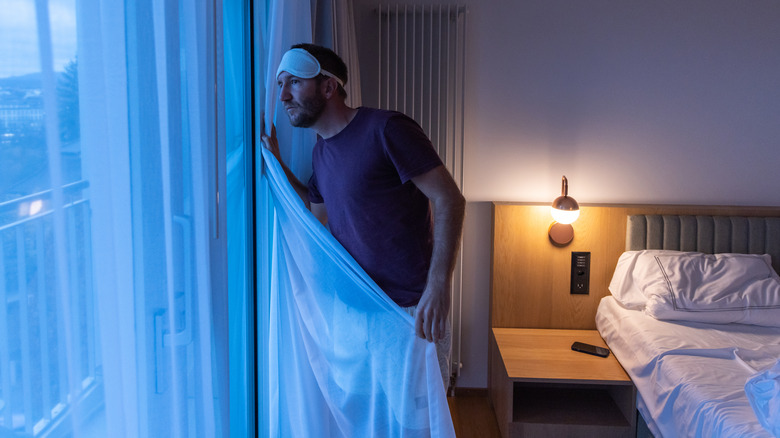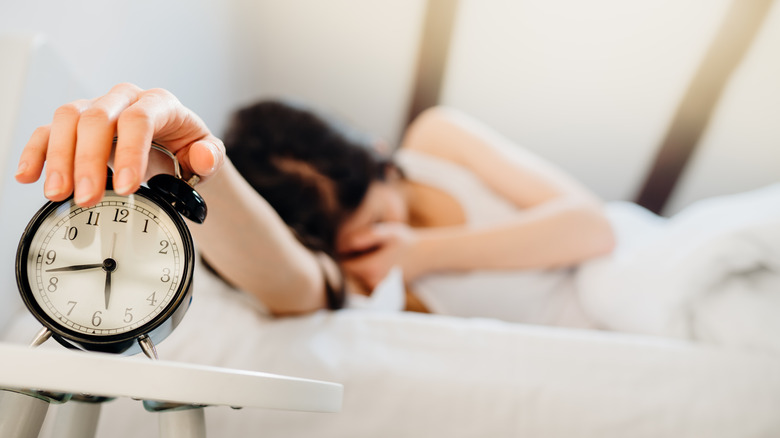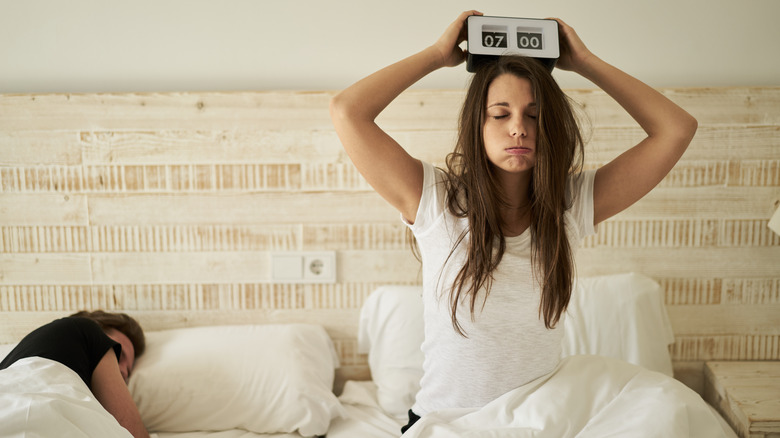Use Jet Lag To Your Advantage With This Genius Travel Planning Tip
Traveling to faraway places is both exhilarating and exhausting — exhilarating because you get to explore unfamiliar territories and immerse yourself in new cultures, yet exhausting because you often have to deal with the clash between your body clock and the local time zone. Jet lag, or the disruption of our circadian rhythm (see also: body clock), is the common enemy of travelers everywhere, seasoned and first-time flyers alike. Despite what any expert says, there's unfortunately no universal prevention for it — just ask the World Health Organization. So, because there's no one way to fully conquer it, why not just embrace it?
If you admittedly don't have good sleeping hygiene (who does?) in the first place, what you can do is take advantage of your jet lag to recalibrate your circadian rhythm from scratch. Instead of fighting the changes in your sleep pattern, why not use them to perform a much-needed reset of your internal clock? This approach is particularly beneficial upon returning home as you strive to readjust to your daily routine. According to the Sleep Foundation, fixing your body clock entails sticking to a strict sleep schedule, optimizing your exposure to natural light all while minimizing artificial light, and, of course, discipline — lots of it.
Restart your body clock with the help of jet lag
Resetting your body clock shouldn't be done arbitrarily, so it pays to have a game plan for day one post-landing. For instance, if you land in the morning, plan to use that time to do anything and everything under the sun — literally. The goal is to tire yourself out so you can knock out quickly by the time you get back, succumbing to sleep exactly when local time dictates you should. It's even better to do activities where you can bask in the sunlight, as the light can be instrumental in telling your body that you need to stay awake. "The sun is the strongest input to the circadian system," Harvard Medical School sleep researcher Rebecca Robbins shared with The Washington Post. "The morning light is the most important for starting that rhythm."
Conversely, should your flight land at night, delay your plans until the next day and try to sleep instead. Finding it a struggle to drift off to dreamland? That's your cue to put down your phone (remember, blue light can cause you to stay awake) and use your favorite sleeping aids, whether that's popping melatonin, using a white noise machine, or applying essential oils. "Basically, anything you can do to get comfortable enough to sleep can have a very strong placebo effect," Jamie M. Zeitzer, co-director of Stanford University's Center for Sleep and Circadian Sciences, shared with National Geographic. Create a comfortable sleeping environment for yourself so you can snooze faster.
Do prep work days beforehand
Now, if you also want to better regulate your sleep during your vacation and mitigate the effects of jet lag as much as possible, you don't necessarily have to wait until the trip starts or ends to do something about it. You can take the proactive approach and prep beforehand so you don't surprise your body with a sudden change. Start by shifting your bedtime by small increments and sleeping later or earlier than you're used to, depending on the destination.
"One of your best strategies to prepare for any westward travel is you just go to sleep, for example, an hour later each night," physiologist David Stevens shared with NPR. But if you're traveling east, try your best to sleep and wake up earlier, and then seek out ample sunlight during the day to facilitate a smoother adjustment. Do the same thing when you return home, especially if your body clock has gone haywire. According to the Cleveland Clinic, adjusting your bedtime can be more effective in restarting your circadian rhythm.
Understandably, not everyone can easily alter their routines for short trips or last-minute vacations. If your schedule hinders you from making changes, at least try to prep during your flight. Fight urges to sleep if the people at your destination are awake, and vice versa. "This is mostly psychological, but it helps you get into the mindset of what you'll be doing in the place where you're going," Dr. Allison T. Siebern of the Stanford University Sleep Medicine Center told WebMD.


